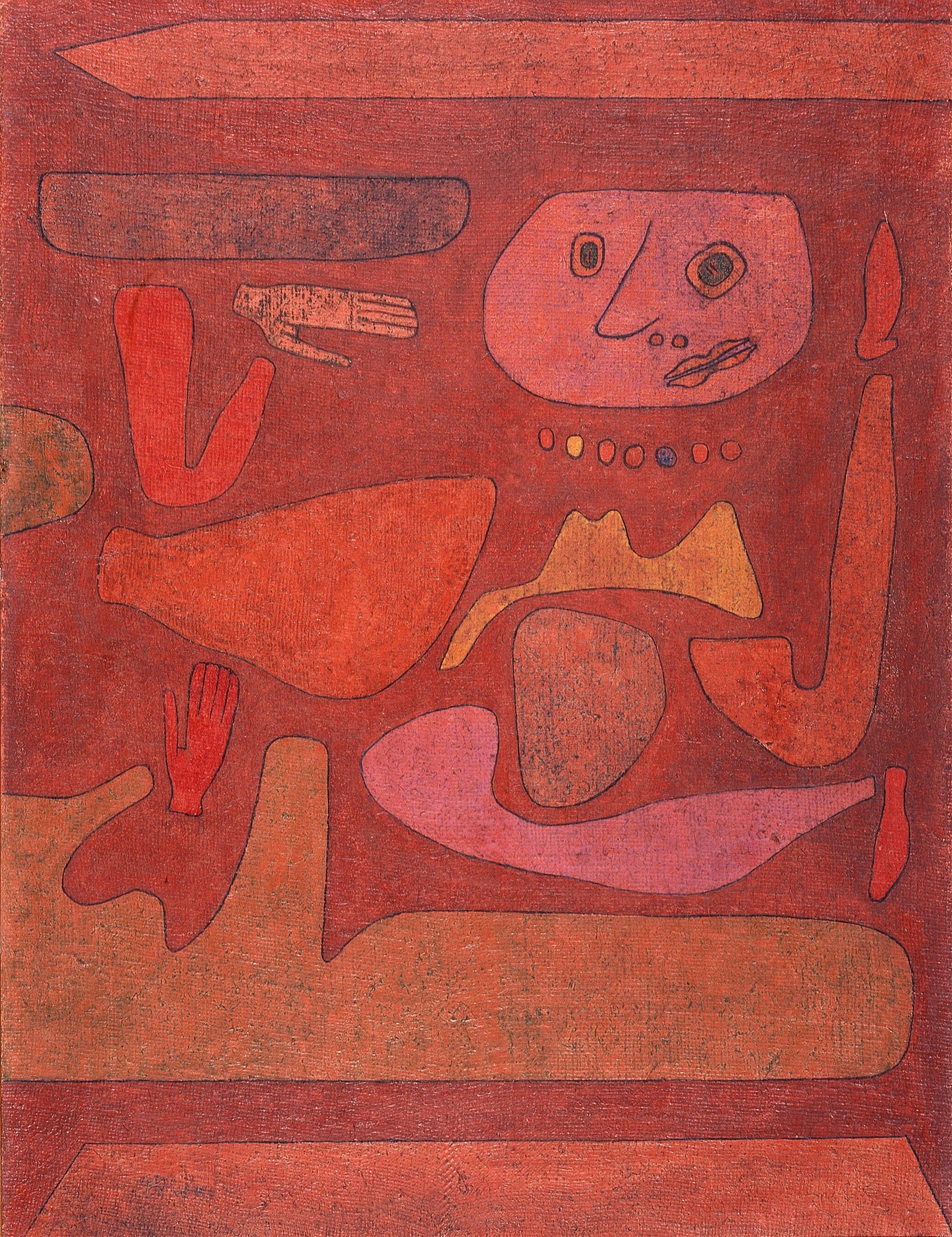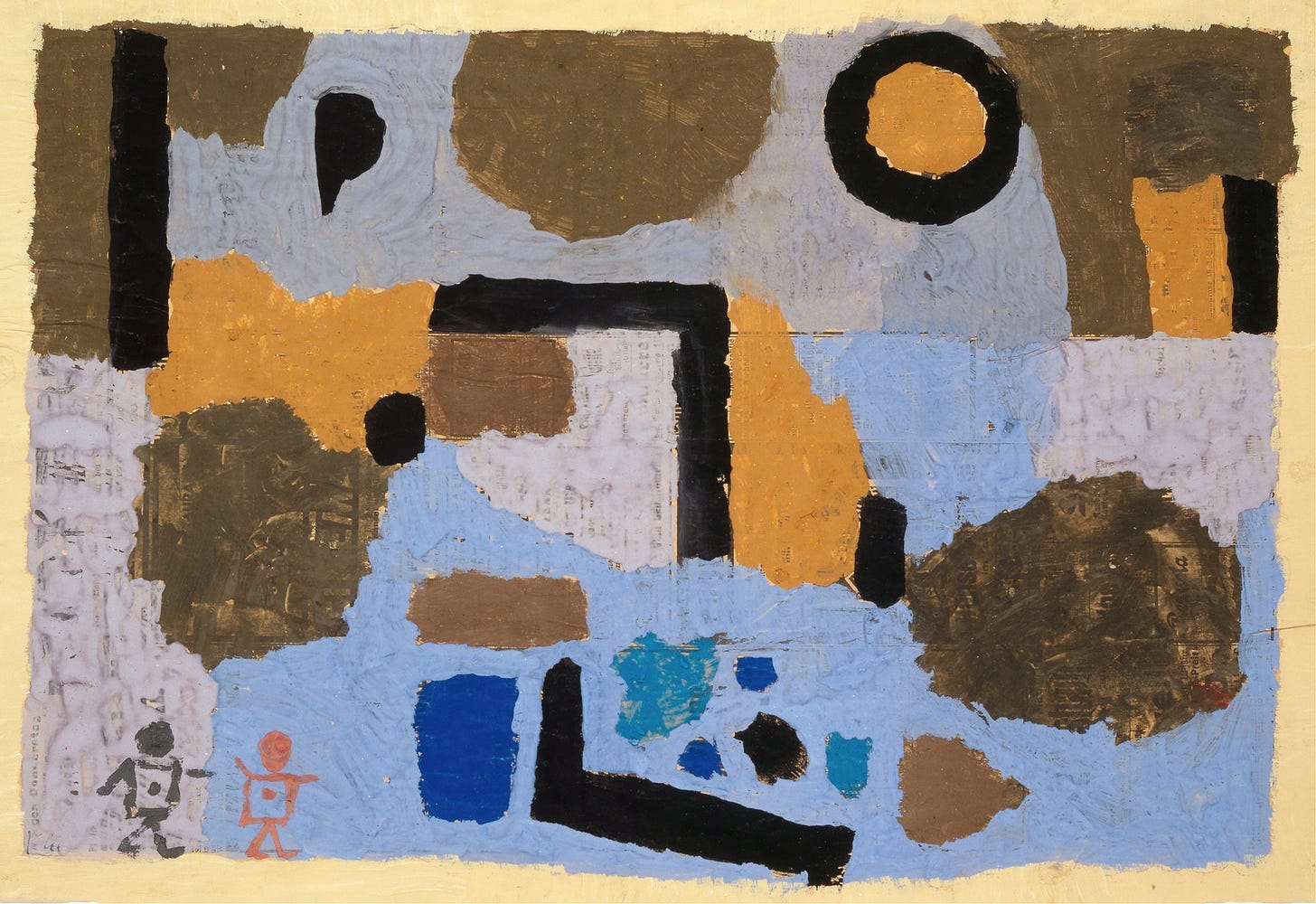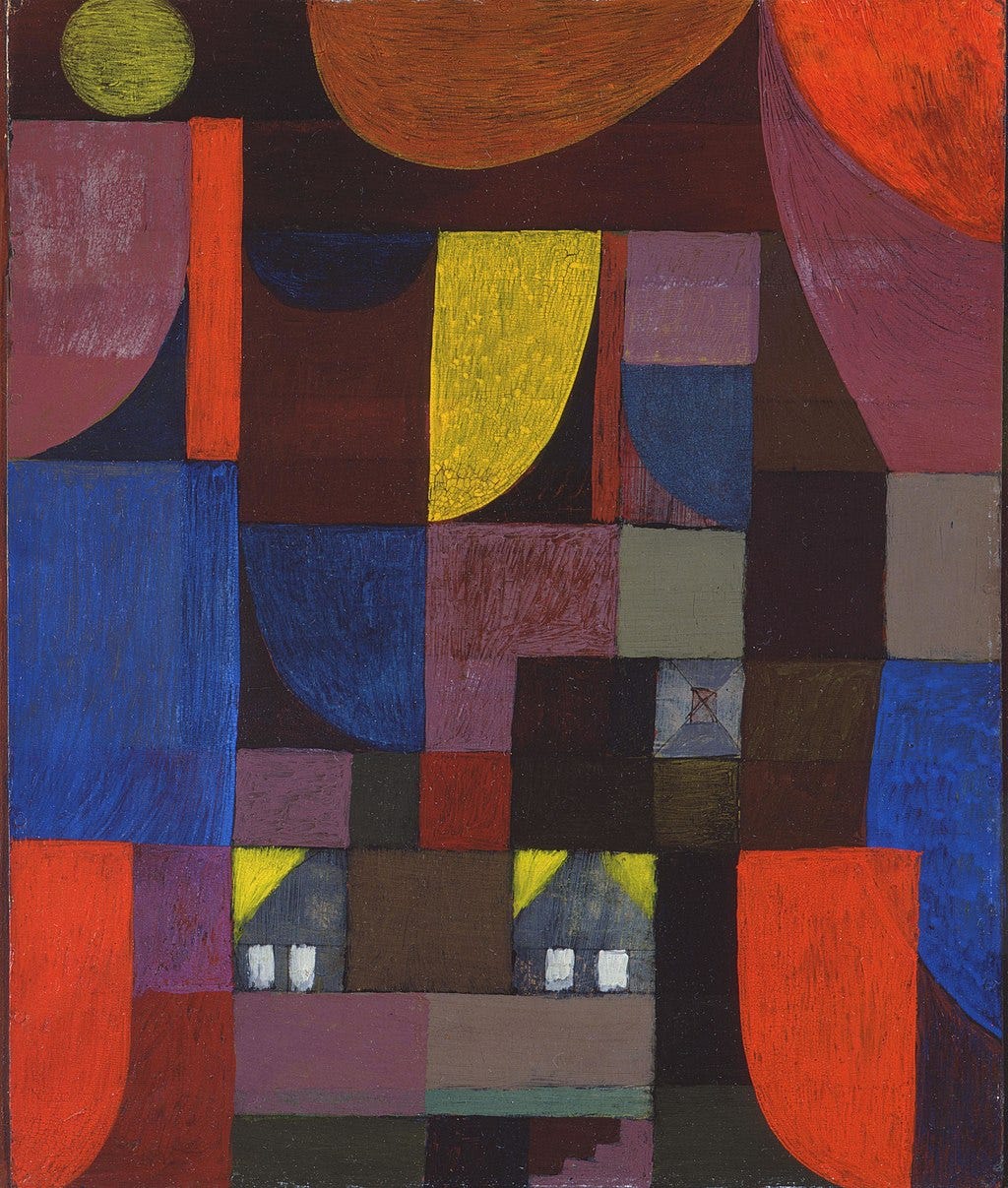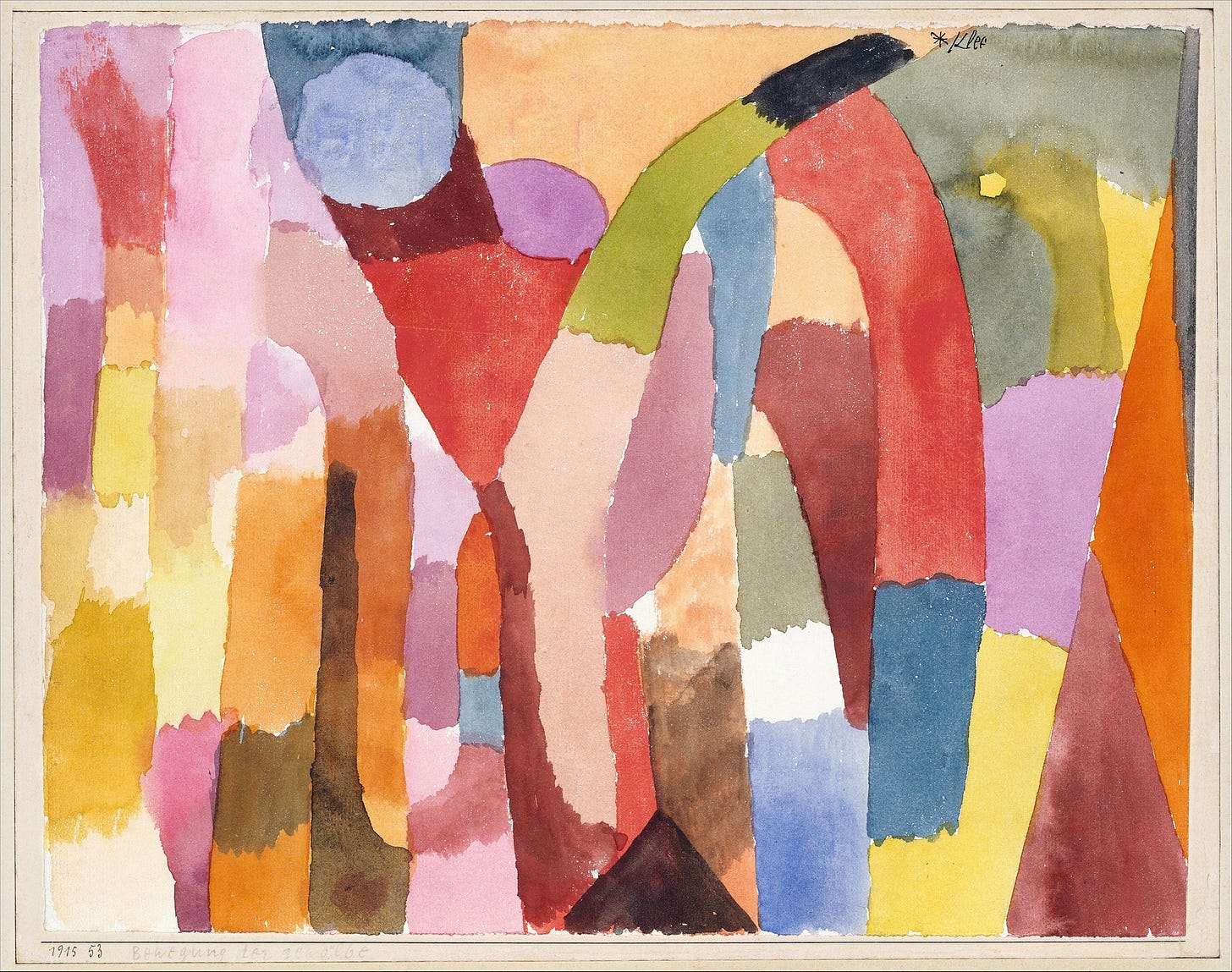Becoming Unknown: Germination
On the creative mystery at the core of who we are
WARNING: Some of the topics and references of this essay may be disturbing. At some points, it is meant to disturb.
The title of the album is Decomposition: Fox on a Highway. The tracks of the album are titled to describe the happenings of a decomposing fox: worms enter its body, its body bloats, cars pass by, until finally the worms exit the body—rather, what used to be a body.
If you let this prolonged event infiltrate your awareness—which you will naturally avoid doing—you will experience revulsion. You might feel queasy, nauseous, unsettled.
What you will feel is called “Animal-Reminder Disgust”, which is elicited by an identification of the self as an animal. Unconsciously, you are reminded of how you are the same as the fox. If things had been different, it could be you on the highway—Worms In, Bloat, Everyone Passing, and finally Worms Out.
The natural response to this disgust is to reinforce the self as distinct from animals. We are better than animals. We are special.
But what are we, if not animals?
Self-Subjectivity
Turning to the natural sciences will help answer this question, but they can only describe the objective aspects of our selves. They emphasize our animal-nature, making even our subjective experience animal. The natural-scientific picture is not complete.
Turn instead to your own experience of self. How does it feel? How does it change depending on what you are doing? Do you lose it sometimes?
Personally, I lose it frequently. When I am engrossed in conversation, work, exercising, and watching something online, the sense of “I” seems to disappear. Remarkably, this disappearance of the “I” is only determined when it returns, when I take a look at my body and come to the flabbergasting realization—perhaps decision—that “I am Louis, nothing more than this chunk of flesh and thought.”
Even though there is no self-consciousness while the self is lost, this immersed-self still seems to be, somehow, part of our ‘grander’ self. On the other hand, the experience of oneself as an individual-self along the lines of “oh, this was me the whole time,” also seems to be part of who we are.
But this individual-self is not the only one of which I become conscious. There are times that, instead of the individual-self, the “I” transforms into something larger-than-life. To understand what I mean, think about the sheer magnitude of human history. Try to feel how long ago the pharaoh Ramses II lived, how much happened since then… and that even human history is minuscule compared to the timescale of life on Earth, and the Earth to the universe as a whole. Sometimes, somehow, I identify not with Louis, but with this vast situation which encompasses countless lives and countless deaths, including my own. I, Louis, will die. But I am more than Louis, I am an eternal-self.
Self-Simulation
From the point of view of the eternal-self, my everyday affairs, both immersive and individual, do not feel real. They are fictive, created simply to keep the processes of the world moving. “Is this who I am? Somebody who takes a bus or rides a bicycle to sit in a room and listen to someone talk for hours, somebody who enjoys eating but cannot stand Natto, somebody who could be hit by a car and decompose on the road?”
Any terms I assign to myself—“student,” “foodie,” “mortal”—all become roles that Louis acts out while engaging with the world. The self, marked by “self-knowledge,” is simulation, where knowledge of the self is identifying roles that are simulated by the self.
What then is the “true”-self, beyond simulation? What are we, at a deeper level than simulation? Perhaps we are simply, truly, the eternal-self—except that the eternal-self is too impersonal to be me, myself. Additionally, this eternal-self is not truly deeper than simulations. It merely assembles a cast of characters together and observes the theater unfold.
Abstrusity
The true-self is abstruse: some parts known, and some parts unknown. It is not complete knowledge, for that is simulation. It is not complete unknown, for then there is no self at all. The true-self is not found through self-knowledge, but abstrusity.
When people suffer from existential anxiety, from being unsure of themselves, they expect self-knowledge of something that is fundamentally abstruse, fundamentally marred with the unknown. Inner peace does not come from self-knowledge, but from understanding the self as unknowable.
Another complexity arises. If your true self is how you are at any moment, does it really capture everything about you? You can never be your true self, you can only become it. Being true to yourself, or rather your true-self, is about becoming something new through a mixture of the known and the unknown. It is being unsettled, or rather rejecting permanent settlement.
This rejecting of permanent settlement, this self-nomadism, realizes the true-self. Practically, it means experimenting, diving head-first into the unknown. We are not held back by simulations, by pre-existing knowledge of what we are. We re-create ourselves experimentally and find our true-selves as we become unknown.
Resources
The amazing album Decomposition: Fox on a Highway is by Saapato and collaborators.
My understanding of Animal-Reminder Disgust comes from the section “Animal-Nature Disgust” of Chapter 10 of the open access textbook Psychology of Human Emotion.
Many of the ideas are not from, but influenced by my premature understanding of the thought of Gilles Deleuze and Félix Guattari. Often it is from recognizing interesting terms like ‘nomadology’ and running away with them.
My notion of abstrusity developed from running away with ideas while reading selections from the Daodejing, translated by Edmund Ryden. It is influenced by some cursory reading I had done of Deleuze’s Logic of Sense.
My understanding of experimental is influenced by a passage from John Cage’s Silence, as reported by the Emergent Futures Lab website.
All artwork is by Paul Klee.






This is very thought provoking and multi dimensional. Instead of attaching to what it really means, i want to detach with the idea of really understanding it, yet being and realizing that through whats unclear and letting that guide us sometimes, comes a space which is unimaginable. Love ❤️ how you make us think!
I really like this one since I think about understanding the meaning of self often. I need to read this a few more times to understand the nuances.